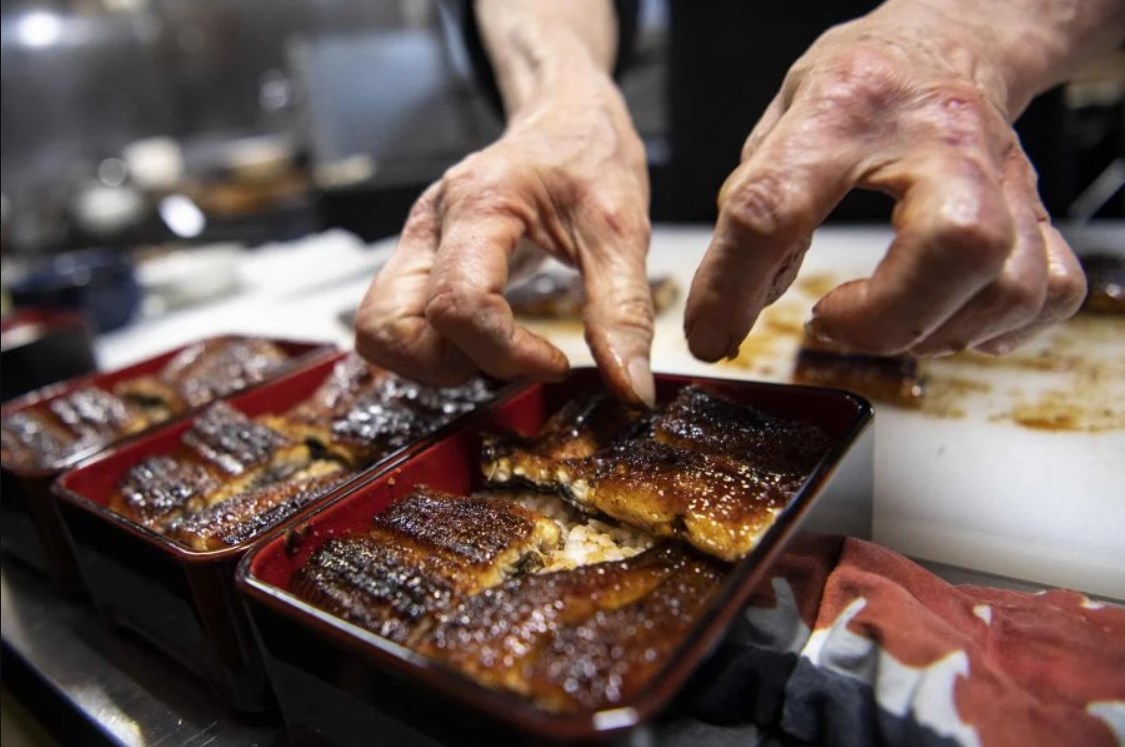Beijing to ban certain foods from Japan over wastewater release plans
Plans to discharge treated wastewater comes after the IAEA greenlighted the initiative, saying that it meets global standards.
-

Japanese chef Tsuyoshi Hachisuka prepares grilled eel before serving them to customers at his restaurant in Hamamatsu, Shizuoka prefecture. (AFP)
As Japan is making plans to discharge treated nuclear wastewater into the ocean, China's customs issued a statement on Thursday saying that it would ban food imports from 10 different Japanese prefectures.
Plans to discharge treated wastewater comes after the IAEA greenlighted the initiative, saying that it meets global standards.
Director General Rafael Grossi said on Tuesday that the plan was "consistent with relevant international safety standards … [and] the controlled, gradual discharges of the treated water to the sea would have a negligible radiological impact on people and the environment."
However, the plan was met with criticism by several regional neighbors, including Beijing who said that a report issued by the IAEA failed to take into consideration the views of experts who partook in the review of the plan and that the release of treated wastewater may thus pose a serious health hazard.
Some Japanese fishermen have also expressed opposition to the plan, saying that fish may suffer from contamination in case the water is released.
Read more: China urges suspension of discharging Fukushima's water into Pacific
On Friday, China's customs authority said it would "ban imports of foodstuffs from ten Japanese prefectures including Fukushima" over safety concerns.
It announced plans to conduct stringent radiation tests on food from the rest of Japan, noting that "China Customs will maintain a high level of vigilance."
"Japan still has many problems in terms of the legitimacy of ocean dumping, the reliability of the purification equipment, and the completeness of the monitoring plan," China said on Friday.
In March 2011, Fukushima suffered one of the world’s worst nuclear disasters since Chornobyl after a tsunami rocked the islands.
Japan is planning to release about 1.33 million cubic meters of groundwater, rainwater, and water that was used for cooling the three damaged reactors at the Fukushima site.
To remove the radioactive elements, plant operator TEPCO treated the water using its ALPS processing systems, which China has expressed doubt regarding the reliability of the systems.
Read more: The Pacific; a dumpster for Fukushima's wastewater - Bloomberg

 2 Min Read
2 Min Read








